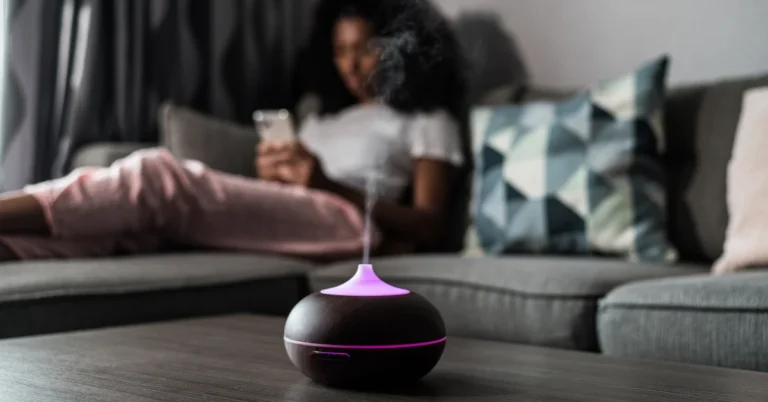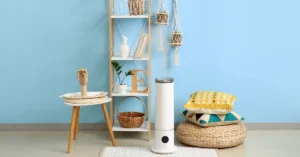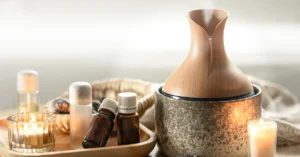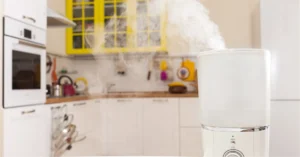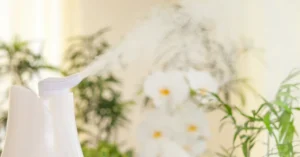Introduction
Imagine walking into a room where the air is filled with the calming scent of lavender or the invigorating freshness of eucalyptus. Sounds perfect, right? For many, humidifiers are a go-to device for improving air quality, especially during dry seasons. But here’s the question that often pops up: Can you safely use essential oils in a humidifier to create that soothing atmosphere?
In this guide, we’ll break down whether adding essential oils to your humidifier is a smart choice, highlight potential risks, and show you the best ways to do it without causing damage to your device or health. Let’s dive in!
What is a Humidifier and How Does it Work?
Before we talk about adding essential oils, let’s quickly cover the basics of how a humidifier works. A humidifier’s main job is to add moisture to the air. It’s especially helpful in dry climates or during colder months when indoor heating can make the air feel dry, causing discomfort for your skin, throat, and even your lungs.
There are a few types of humidifiers, but the most common ones are:
- Ultrasonic Humidifiers: These use ultrasonic vibrations to create a cool mist from water.
- Evaporative Humidifiers: They work by evaporating water into the air with a fan.
- Warm Mist Humidifiers: These boil water and release warm steam.
Each type has its strengths, but the key thing to know is that they are all designed to work with water—not oils. Mixing oils into your humidifier could have unintended consequences, but more on that in a bit.
Can Essential Oils Damage Your Humidifier?
Here’s where things get tricky. While essential oils can smell amazing, they aren’t always compatible with traditional humidifiers. Let’s break down why:
- Clogging the Device: Essential oils, especially thicker ones like sandalwood or patchouli, can cause clogs in your humidifier. These oils don’t dissolve in water, meaning they can stick to the inner components, like the water tank and misting parts, reducing the efficiency of the device.
- Corrosion and Breakdown: Many humidifiers are made with plastic components. Essential oils can corrode or degrade these materials over time. This might not happen right away, but long-term use of oils in the wrong humidifier can lead to leaks or a broken machine.
- Void the Warranty: Manufacturers typically design humidifiers for use with water only. If you add essential oils and your device breaks down, it’s possible that the warranty won’t cover the repairs or replacement, leaving you stuck with a costly fix.
It’s clear that using essential oils in a standard humidifier can cause problems. But that doesn’t mean all hope is lost! There are safe alternatives.
Best Alternatives for Using Essential Oils with a Humidifier
Don’t worry—you can still enjoy the benefits of essential oils in your home! The trick is knowing which devices are built to handle them. Here are some alternatives and methods that are much safer for your humidifier and your air quality:
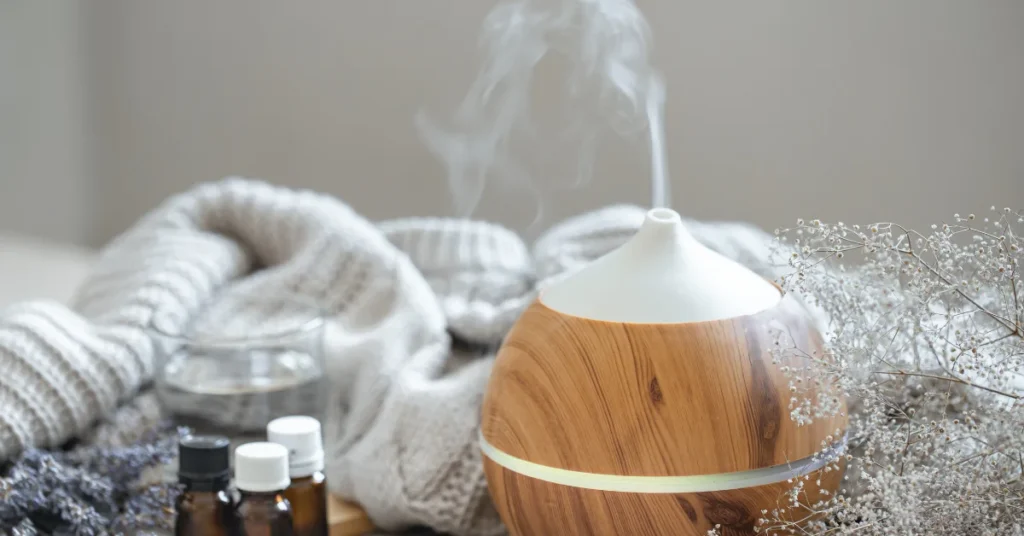
Use a Diffuser Instead of a Humidifier:
- Essential oil diffusers are specifically designed to disperse oils into the air. They don’t use water the same way a humidifier does, which prevents clogging and damage.
- Ultrasonic diffusers use vibrations to turn water and essential oil droplets into a fine mist, making them a great alternative to a traditional humidifier if your main goal is to spread scent and benefits from oils.
Humidifiers with Built-In Diffusers:
- Some humidifiers are designed to work safely with essential oils. These devices come with special compartments or pads where you can add oils without mixing them directly into the water.
- If you’re keen on having both air moisture and fragrance, consider upgrading to one of these combo models.
Use Oil Trays or Pads:
- Some humidifiers include an oil tray or pad option where you can place a few drops of essential oil. This keeps the oils separated from the water tank, protecting your humidifier from potential damage while still releasing the scent into the air.
DIY Methods:
- If you prefer using your existing humidifier but still want some fragrance, try placing a bowl of essential oil-infused water near the humidifier or directly in front of its mist output. This can create a gentle aroma in the room without risking damage to your machine.
These alternatives help you enjoy the benefits of essential oils without worrying about damaging your humidifier. Next, let’s talk about how to safely use essential oils in your humidifier if you have a compatible device.
How to Use Essential Oils Safely in Your Humidifier
If you’ve invested in a humidifier that’s designed to handle essential oils or has an oil tray feature, you’re in luck! You can now enjoy the benefits of both moisture and aroma. But, even with the right device, there are a few guidelines to ensure you’re using oils safely:
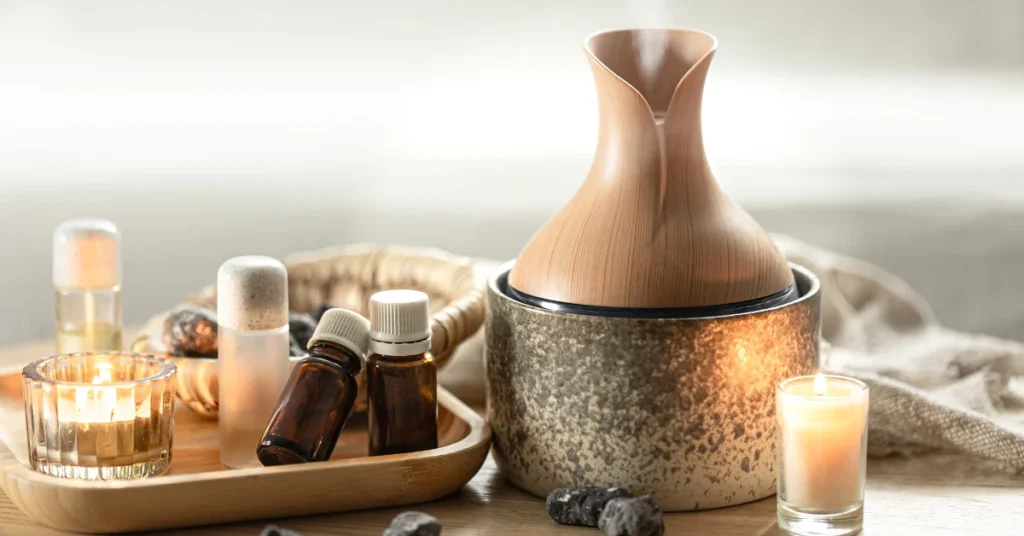
How Many Drops of Essential Oil Should You Use?
- Generally, it’s best to start with 3-5 drops of essential oil per full tank of water. This might vary based on the size of the humidifier and the strength of the oil, so it’s smart to begin small and adjust based on how strong the aroma is.
- For larger tanks, you can increase the amount to 10-15 drops, but always check your machine’s recommendations to avoid overloading the system.
Dilute the Oils Properly
- Essential oils are highly concentrated, and adding them directly into water can sometimes cause them to separate. To avoid this, you can mix the oils with a small amount of carrier oil (like coconut or jojoba) before adding them to the humidifier’s oil compartment.
- However, if your humidifier has an oil tray or pad, diluting may not be necessary. Just make sure to follow your device’s manual for instructions.
Regular Maintenance to Keep Your Humidifier Clean
- Essential oils can leave behind residue, which can affect how well your humidifier functions. Make sure to clean your device regularly—at least once a week—especially if you use oils.
- Use a soft cloth and a mixture of vinegar and water to gently wipe down the inside parts. This helps prevent clogs, residue buildup, and extends the life of your humidifier.
By following these steps, you can safely enjoy essential oils in your humidifier without worrying about damaging the device or compromising the air quality.
Which Essential Oils Are Best for Air Quality?
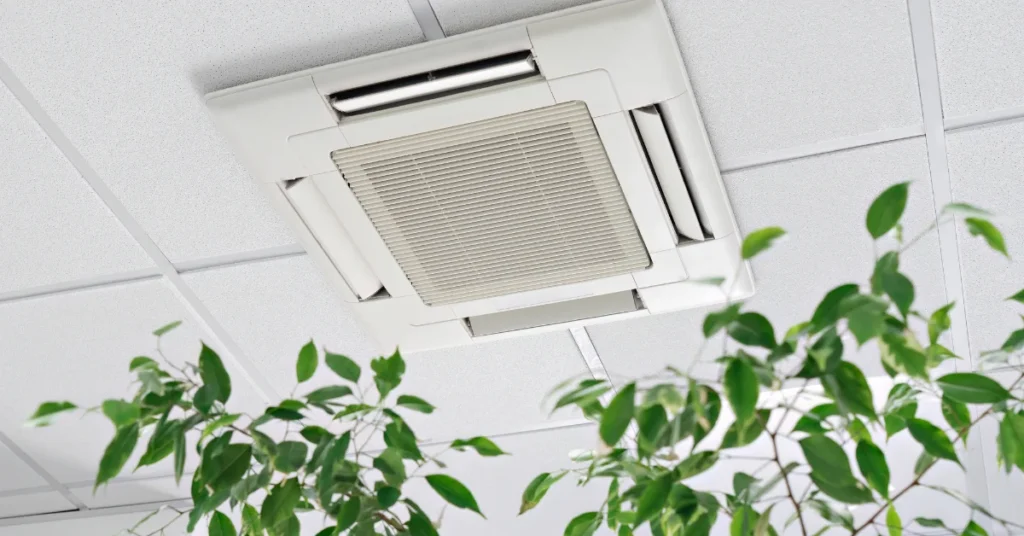
Not all essential oils are created equal when it comes to air quality and respiratory benefits. Some oils can help improve breathing, clear sinuses, or even boost relaxation. Here are a few top picks for essential oils that are both soothing and beneficial for your home’s air:
Eucalyptus Oil: Known for its strong, minty aroma, eucalyptus is excellent for opening up the airways. It’s often used in treatments for colds, allergies, and sinus issues. If you’re dealing with congestion, eucalyptus can help make breathing easier.
Lavender Oil: Lavender is a classic for promoting relaxation and sleep. Its calming scent is perfect for the bedroom, especially if you want to wind down after a long day or create a peaceful environment.
Peppermint Oil: Peppermint offers a refreshing, invigorating scent. It’s also helpful for reducing headaches and improving mental clarity. Additionally, it can assist in opening up your nasal passages, similar to eucalyptus.
Tea Tree Oil: Tea tree oil is well-known for its purifying properties. It can help clean the air by reducing airborne bacteria and mold. Plus, it has a crisp, medicinal scent that works well in shared or common spaces.
Lemon Oil: If you’re looking to freshen up your space, lemon oil is the way to go. It has a bright, clean scent that works wonderfully in kitchens or living rooms. Lemon oil is also known for its mood-boosting properties, making your home feel more energized and welcoming.
When choosing oils, it’s important to consider the specific atmosphere or benefits you’re trying to create. These essential oils not only smell great, but they can also help enhance your air quality, making your living space both healthier and more pleasant.
Benefits of Using Essential Oils in Your Home
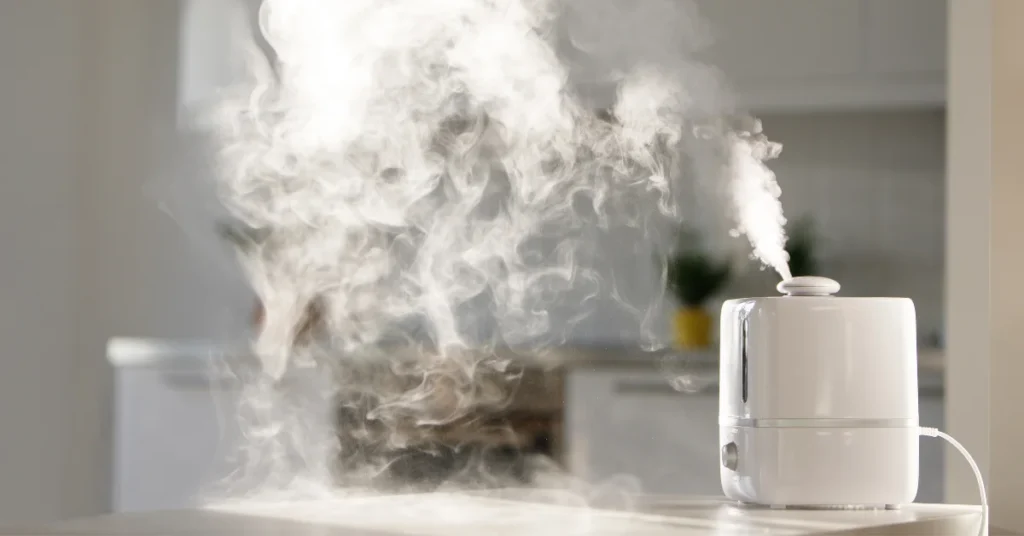
Using essential oils in your home offers more than just a pleasant fragrance. These powerful, natural oils provide a range of benefits that can enhance both your physical and emotional well-being. Here’s why incorporating essential oils into your space is worth considering:
Boost Mood and Relaxation: Certain essential oils, like lavender and chamomile, are known for their calming effects. They can help reduce stress and anxiety, creating a peaceful environment perfect for relaxation or winding down after a busy day. Uplifting scents like citrus oils (lemon or orange) can also help boost your mood and increase focus.
Improve Respiratory Health: If you suffer from allergies, congestion, or respiratory issues, oils like eucalyptus and peppermint can help. These oils have decongestant properties that open up your airways, making it easier to breathe. They’re especially helpful during cold and flu season.
Purify the Air: Essential oils like tea tree and lemon are known for their antibacterial and antifungal properties. They can help purify the air in your home by reducing harmful airborne germs and bacteria. This is especially beneficial if you want to maintain a cleaner, fresher environment.
Create a Personalized Environment: Essential oils allow you to customize your living space to fit your needs. Whether you want a cozy, calming bedroom or an invigorating, fresh-smelling kitchen, different oils can help create the atmosphere you’re looking for.
Support Better Sleep: Oils like lavender and frankincense can promote a restful night’s sleep. These oils work by calming the nervous system and relaxing the body, making it easier to drift off and stay asleep through the night.
With all these benefits, it’s clear that essential oils aren’t just about making your home smell good—they offer real, tangible improvements to your air quality, mood, and health.
Conclusion
So, can you put essential oils in a humidifier? The answer is yes—if you have the right type of device and follow the proper steps. While traditional humidifiers aren’t built for essential oils and could be damaged, there are alternatives like diffusers or humidifiers specifically designed to handle oils. With the right approach, you can safely enjoy the benefits of essential oils, from improved air quality to enhanced relaxation and better sleep.
Always remember to check your humidifier’s manual, use the appropriate number of oil drops, and clean your device regularly to keep it running smoothly. Whether you’re looking to refresh your space, soothe respiratory issues, or simply enjoy a peaceful scent, essential oils can be a wonderful addition to your home.
